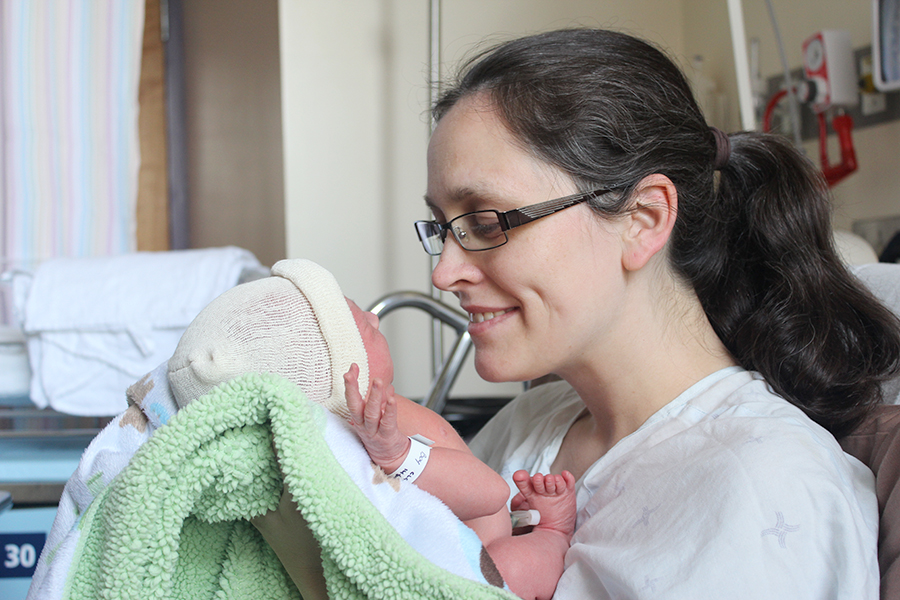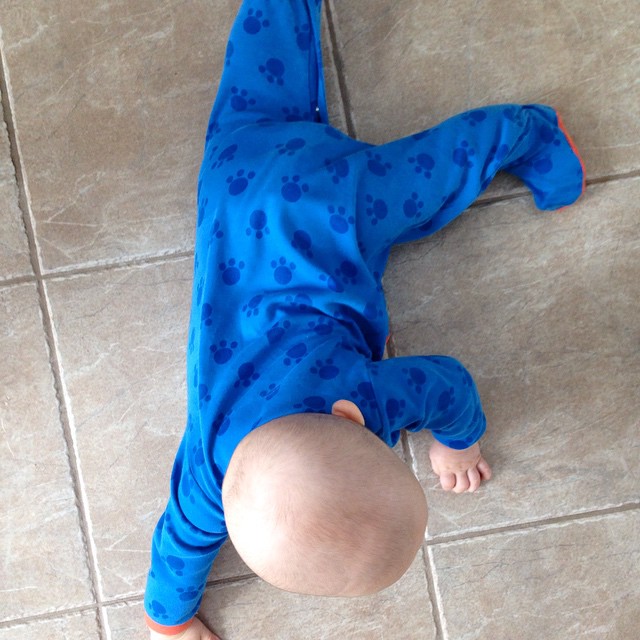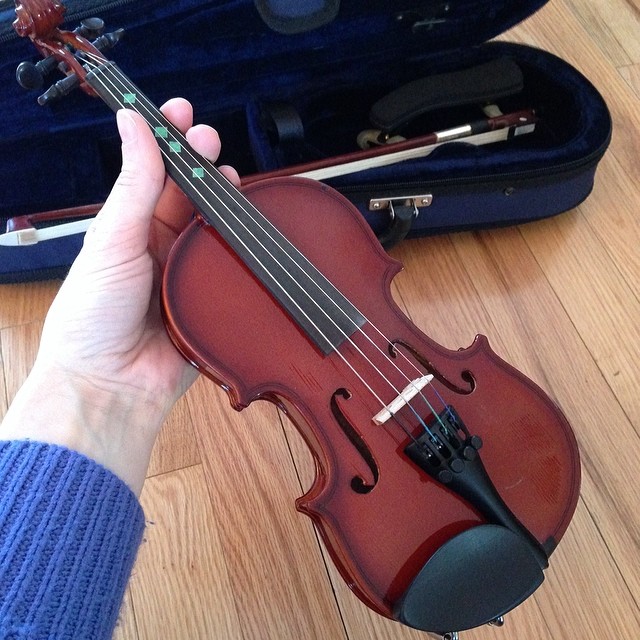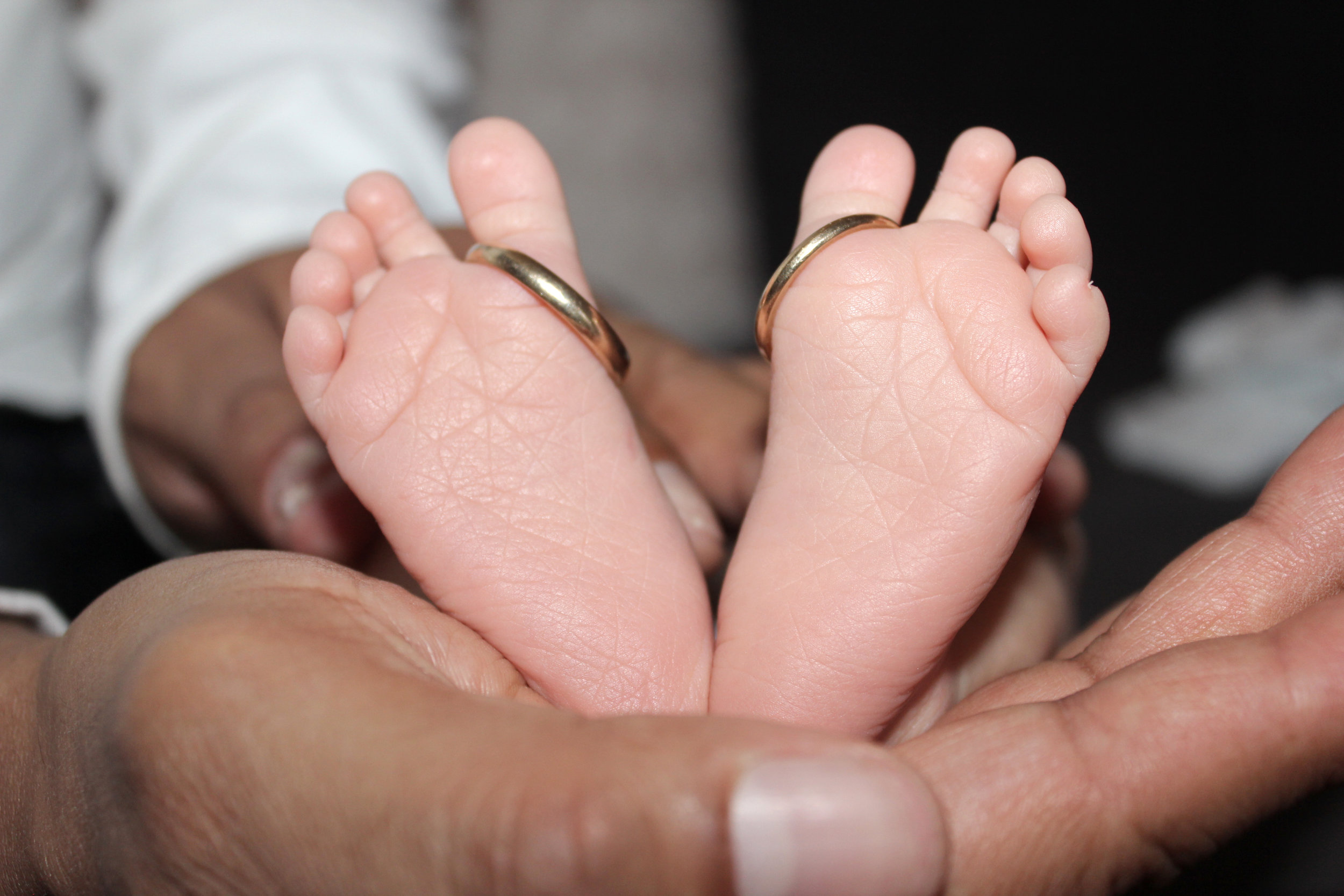6 easy steps to help your child through a tantrum.
1. Stay calm.
This is probably the one most important thing you can do. No one has ever been able to control their emotions when the person they're talking to loses it. So don't expect your toddler, who doesn't even know what an emotion is, to be able to control his if you go bonkers.
This doesn't mean to pretend you're calm by talking softly while still boiling inside. Kids aren't stupid, they can see right through you, just like we can.
If you want any of these next tips to work, you have to be able to control your own emotions. So take a deep breath (or two). If you can't handle your own emotions, there's no point moving forward, you've already lost the battle. In that case, you better take a short break and come back to address the situation when you've cooled off.
This step is absolutely necessary. Your calmness will help your toddler regain his.
2. Remind yourself that you have no control.
Repeat this to yourself: "I have no control." Starting with that mindset will naturally shift your approach. You might even feel vulnerable and automatically end up showing compassion, which brings us to....
3. Show empathy.
You must do this even if you you're late for work, or in a rush for an appointment. Especially so! Taking 2 minutes to go through this step is a total game changer, I promise.
Take action: Bend down to his level, take his hands in yours and ask him to look at you in the eyes. Do not continue talking until you have eye contact. Once you do, you must give no more than 3 short sentences; toddlers have a very short attention span.
You want to confirm how he feels by saying things like: "You don't want to go to daycare today do you? Would you rather stay home and play with mommy?" or "Are you sad?" or "Do you wish mommy didn't go so fast?"
Before you panic...saying these things does not mean you will do them! It just shows them you understand and it will help them immediately calm down.
This step is very important because it's the very first step in emotional intelligence; by being empathetic towards your child, you are showing him how to be empathetic and you are educating him. The more you do this, the more he will replicate the exact same thing with others and even you!
4. Provide comfort.
There's nothing like mommy or daddy's embrace. Physical contact does crazy wondrous magic. I swear.
Take action: At this point you can offer a cuddle and a kiss. If they don't want to, respect them (again, by respecting them, you are educating them on how to respect others). You can follow with your second sentence, something like this: "I love you." or "I'm here for you." or "Let's figure this out together." If he doesn't want to, don't push it and be respectful of his wishes.
5. Skip time-outs.
There is a lot of parenting advice that says to use time-outs or punishments to handle tantrums. To be completely honest with you, that's the absolute worst path to take.
There's a reason your toddler is acting out. Is he exhausted because he didn't nap? Maybe he's hungry because you forgot snack time. Have you played with him consistently in the past few days? Or maybe you've been in his face all weekend and he just can't take it anymore.
Whatever the reason, a tantrum happens because he has no other way to express his feelings and ignoring him or using threats of punishments only creates more intense negative feelings like anger, sadness and anxiety...It makes you more mad, and it makes it harder for him to control his feelings.
The best thing to do is to find alternatives because when you choose a time-out or a punishment, you are creating a disconnection with your child. He may stop crying the first few times because he wants to be with you (the true intention of the tantrum), but eventually he will resent you for it. This will create one of 2 things; a child with low self esteem that obeys at every threat, or a defiant child that doesn't give a sh*t and gives you a run for your money.
I don't know about you but neither of those options sound good to me. What I want is a child with a healthy level of self-esteem, a reasonable amount of respect and empathy for others, with the ability to openly communicate. By following all the steps I'm showing you today, this is very much a possibility!
6. Be firm + consistent.
Being firm doesn't mean raising your voice, or being verbally aggressive. It simply means to hold your end, respectfully. If your toddler comes out of his bed when it's time to sleep, simply bring him back to his bed and give him another hug and kiss. If he comes down again, repeat. Do this until he understands that no matter what, you will always bring him back to his bed. Yes, it will take time. Yes, you might be there for a while. Yes, you will need a lot of patience to remain calm, but he will understand eventually.
As for being consistent, it means always doing the same thing and expecting the same result, every single time. Like going to bed at the same time, and continuing to bring him back to his bed when he comes out, patiently, every single day. PATIENCE. That's all it takes.
When you're setting all those limits, it's going to take a lot of energy and time on your part. But once they're in place, the rest is easy. He will trust you and feel safer with you. He will look to you for advice and will communicate with you.
BONUS: By being firm and consistent when they're very little (even though it might be long and painful and you might pity your poor crying baby who doesn't want to go to sleep), you are building the foundation for a much easier child and teenager. If you're not consistent now, your child will constantly be testing you, to see if you'll change your mind. I don't know about you but I rather take the time now then have to deal with 20+ years of constantly being challenged.
Congratulations! You've graduated!
You're probably thinking: doesn't all this take a lot of time and energy? Yep, in the beginning it will, more than if you were to use punishments.
Remember though, no pain no gain!
I won't lie to you, you'll feel overwhelmed in the beginning. Especially if you're starting with an older child (you'll have to make him unlearn what he already knows about you before you can teach him about the new you - which is why it's better to start at birth!)
But it will pay off, I promise! And a few months down the road, when everyone else is complaining about how much their toddlers (or kids) act out, you'll be having a mini party in your head. Literally.
Do you do any of the above methods? Does it help? I'd love to know how you handle tantrums or if you have any. Let me know in the comments below!

































